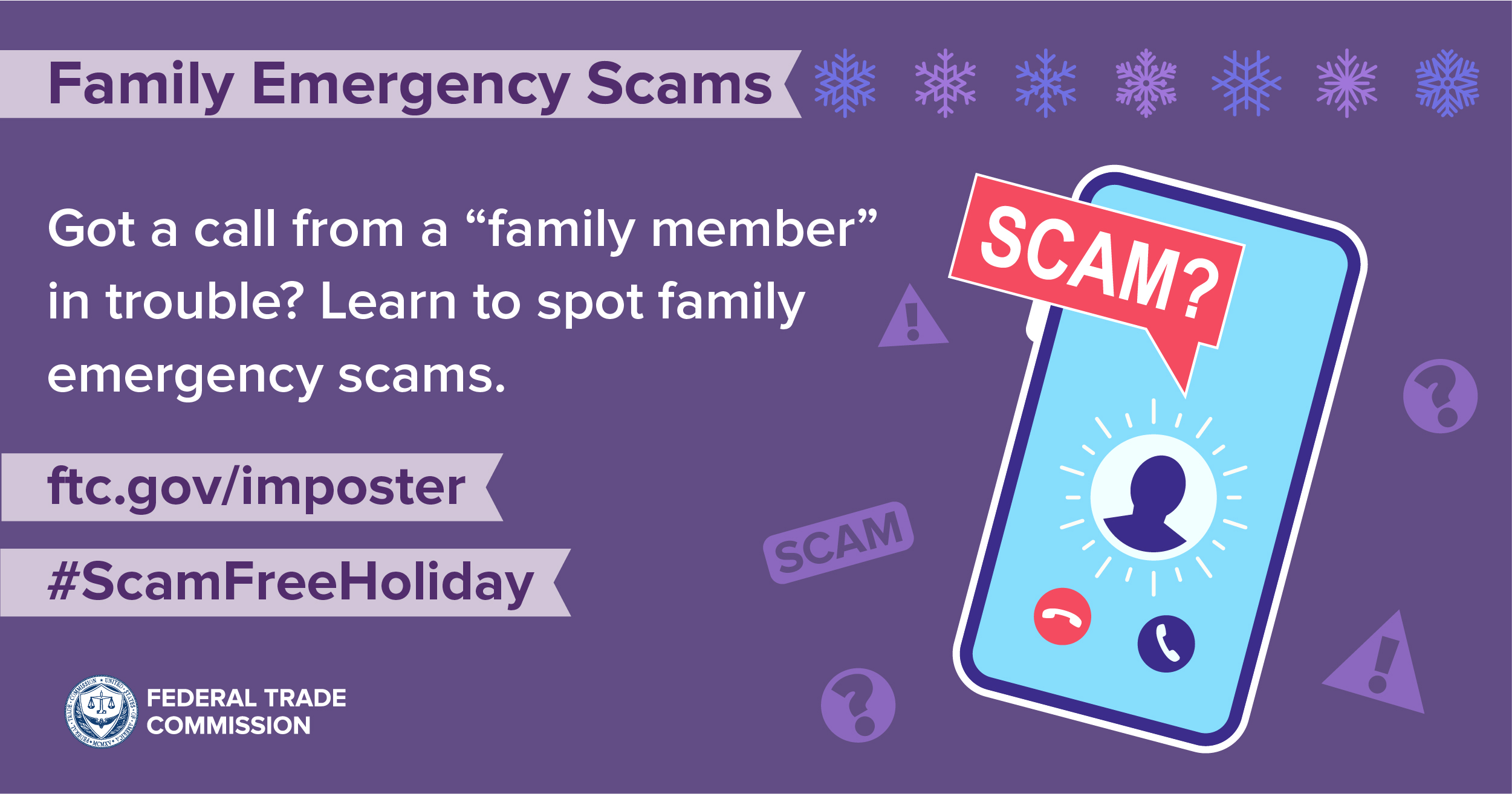 Kwanzaa, which is based on traditional African harvest festivals, is celebrated every year from December 26 to January 1. The first principle of Kwanzaa is Umoja (unity) and the importance of finding ways to stay united and working together. Pulling together to protect loved ones — against scammers, for example — is especially important this time of year.
Kwanzaa, which is based on traditional African harvest festivals, is celebrated every year from December 26 to January 1. The first principle of Kwanzaa is Umoja (unity) and the importance of finding ways to stay united and working together. Pulling together to protect loved ones — against scammers, for example — is especially important this time of year.
Just as we may be — at last — traveling to spend time together, scammers are scheming to convince you there’s a family emergency. Scammers pretend to be your loved one (or a friend, police officer, lawyer, or doctor) and try to scare you into sending money to (supposedly) help them. These scams often target older people and say it’s urgent and only you can help. The scam can play out in different ways but the bottom line is the same: the caller lies, tries to scare you, and rushes you to pay so you don’t have time to think twice or check things out before you send money.
Help protect those close to you. Tell family and friends what to do if they get a call like this:
- Resist the urge to act right away — even if the story is dramatic.
- Then, call or message your family member or loved one — even if the caller said not to. Use a number you know is right, not a number the caller gave you.
- Most importantly, never send cash, gift cards, wire transfers, or cryptocurrency. Once the scammer gets the money, it’s gone. If you spot this or other scams, let us know at ReportFraud.ftc.gov.
Finally, enjoy your time with those close to you.
